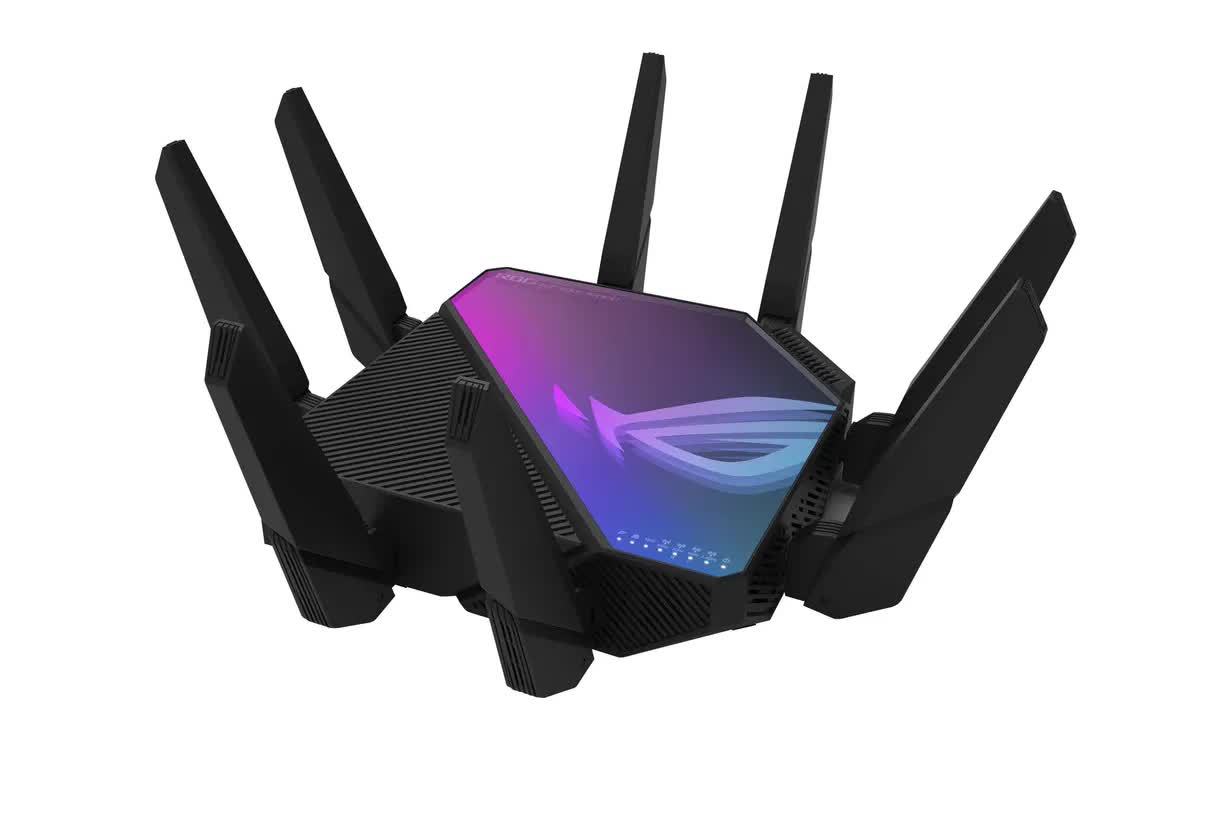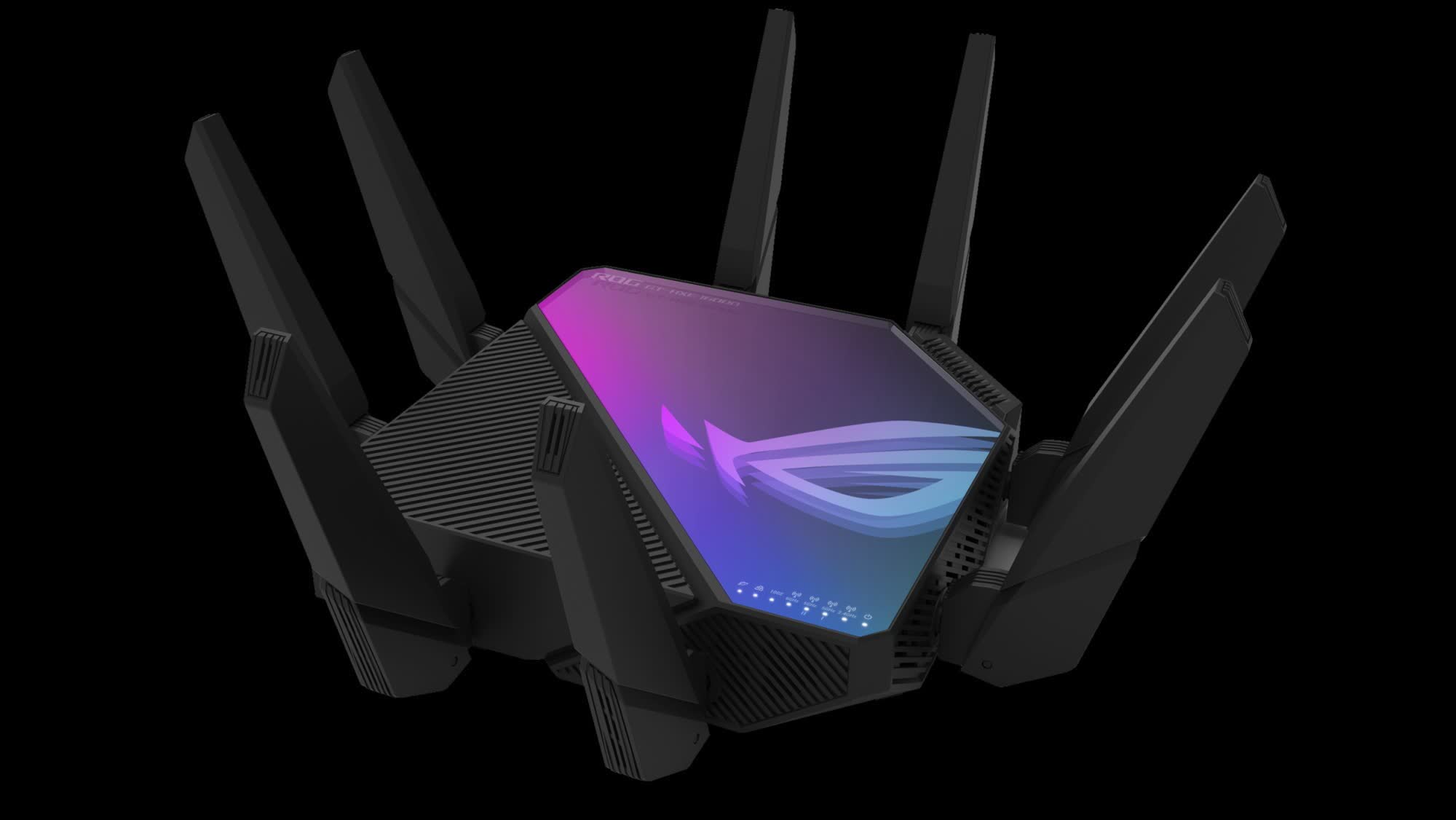What just happened? Asus’ ROG Rapture series of routers are known for their raw power, aggressive looks, and often wallet-destroying price. The ROG Rapture GT-AXE16000 it just unveiled at CES is no exception, but then it is the “world’s first quad-band Wi-Fi 6E gaming router.”
As noted by The Verge, Asus’ statement is true to an extent; the GT-AXE16000 isn’t the world’s first quad-band WiFi 6E router—Netgear introduced a quad-band Orbi mesh router system last year—but it is the first one designed specifically with gamers in mind.
The Asus ROG Rapture GT-AXE16000 broadcasts a total of four wireless bands: one 2.4GHz, two 5GHz, and the new 6GHz. The 5GHz and 6GHz bands offer up to 4.8Gbps throughput, while the 2.4GHz tops out at 1,148Mbps. Those are all theoretical maximum speeds that you’re not going to see, of course, but it still shows just what this router is capable of.
Owners will also be able to use the 5GHz or 6GHz bands as a backhaul when setting up a home mesh networking with other compatible Asus AiMesh routers, leaving the other bands free for device connections.
There are plenty of options for those going wired. The Asus ROG Rapture GT-AXE16000 features two 10Gbps RJ45 Ethernet LAN ports for lightning-fast network connections and a 2.5Gbps WAN port to make the most of any speedy ISPs. It also comes with four 1Gbps LAN ports, a USB 3.2 gen 1 port, USB 2.0 input, and is powered by a 2.0GHz quad-core 64-bit CPU alongside 1GB of DDR4 RAM.
Being a quad-band Wi-Fi 6E router means paying a premium, $649 in the case of the GT-AXE16000, which arrives in the first quarter of this year. It's still cheaper than Netgear’s $1,500 Orbi system, though that model does come with three mesh routers.
For those who want a cheaper Wi-Fi 6 router, Asus also showed off the ROG Rapture GT-AX11000 Pro (above), a refreshed version of the Wi-Fi 6 GT-AX11000. It’s very similar to the GT-AXE16000, featuring the same quad-core, 64-bit, 2GHz CPU, but is missing the 6GHz band. It will cost $399 when it launches in Q2 2022.
https://www.techspot.com/news/92863-asus-reveals-world-first-quad-band-wi-fi.html

